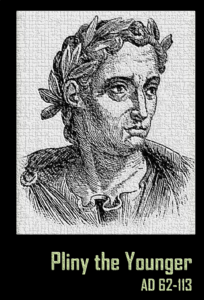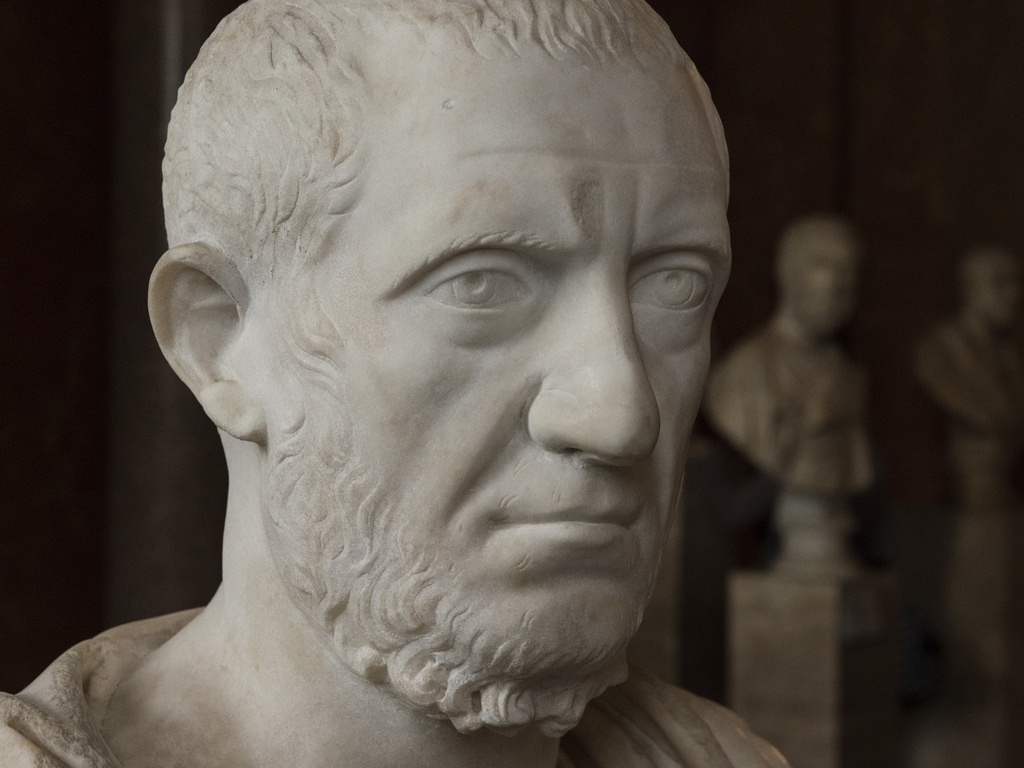 Pliny the Younger is another valuable historical source for information on Jesus and the early Church. Pliny was the governor of the Roman province of Bithynia, located in Asia Minor. In the year 112 AD, he wrote to the Emperor Trajan, asking how he should deal with those in his region who have been accused of being Christians.
Pliny the Younger is another valuable historical source for information on Jesus and the early Church. Pliny was the governor of the Roman province of Bithynia, located in Asia Minor. In the year 112 AD, he wrote to the Emperor Trajan, asking how he should deal with those in his region who have been accused of being Christians.
In the letter, Pliny describes the practices of these “criminals”:
“They were in the habit of meeting on a certain fixed day before it was light, when they sang in alternate verses a hymn to Christ, as to a god, and bound themselves by a solemn oath, not to any wicked deeds, but never to commit any fraud, theft or adultery, never to falsify their word, nor deny a trust when they should be called upon to deliver it up; after which it was their custom to separate, and then reassemble to partake of food–but food of an ordinary and innocent kind.”
From this passage, we can ascertain a number of facts about the early Church in Asia Minor:
1.Christians met on a “certain fixed day, before it was light”. This is undoubtedly a reference to Sunday worship.
2. The also “sang…a hymn to Christ, as to a God”. This worship involved worship of Jesus Christ. This is early, extrabiblical evidence of Christian belief in the Deity of Christ. In other words, the Divinity of Jesus is not a later “creation” of the Church. Who knows? Perhaps the hymn they were singing is the one St Paul quotes in Philippians 2:5-11.
3. Catholic Christianity, then as now, required adherence to the teaching of the Church on both faith (what to believe) and morality (how to live). We see the latter in Pliny’s description of the 2nd-century believers: they “bound themselves by a solemn oath, not to any wicked deeds, but never to commit any fraud, theft or adultery, never to falsify their word, nor deny a trust when they should be called upon to deliver it up”.
4. They celebrated the Eucharist. In all likelihood, that explains the reference to their “partaking of food – but food of an ordinary and innocent kind”. Why did Pliny stress that last point? It could well be a reference to the fact that Christians were thought to be cannibals, because it was said that they ate the flesh and drank the blood of a certain individual when they met for their sacred meals. Some in Pliny’s day even spread rumors that babies were sacrificed for this purpose. This is, of course, a colossal misunderstanding of the Eucharist. Early Catholics did (as we continue to do) eat the true flesh and drink the actual blood of Christ in the Eucharist, albeit in a sacramental, unbloody manner.
All of this corroborates what we know of the beliefs and practices of the Catholic Church, as presented in the New Testament.


